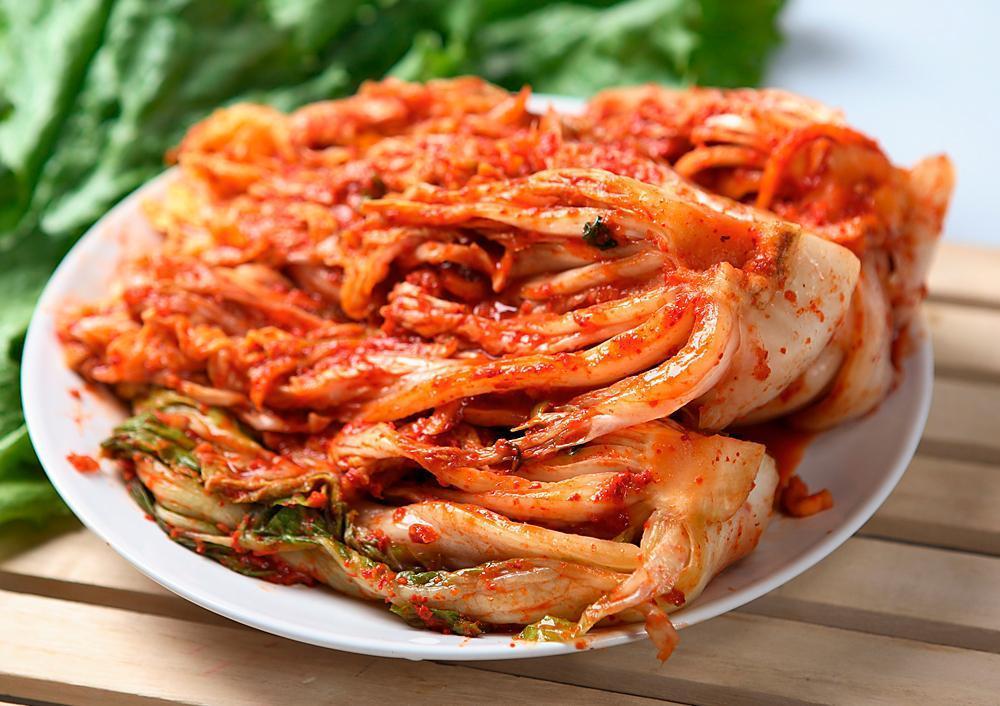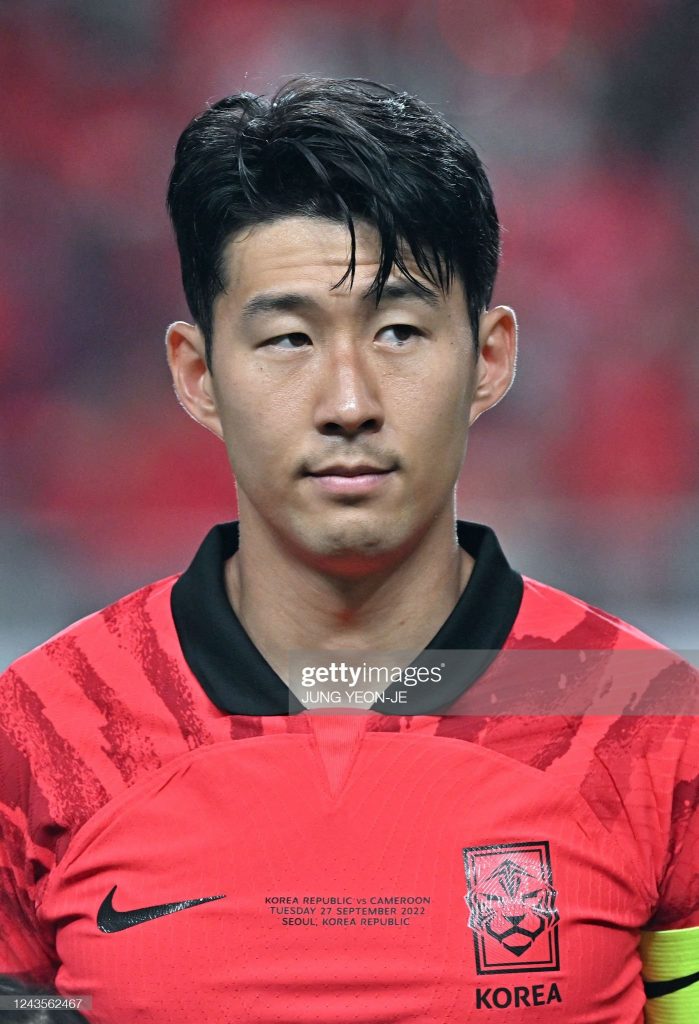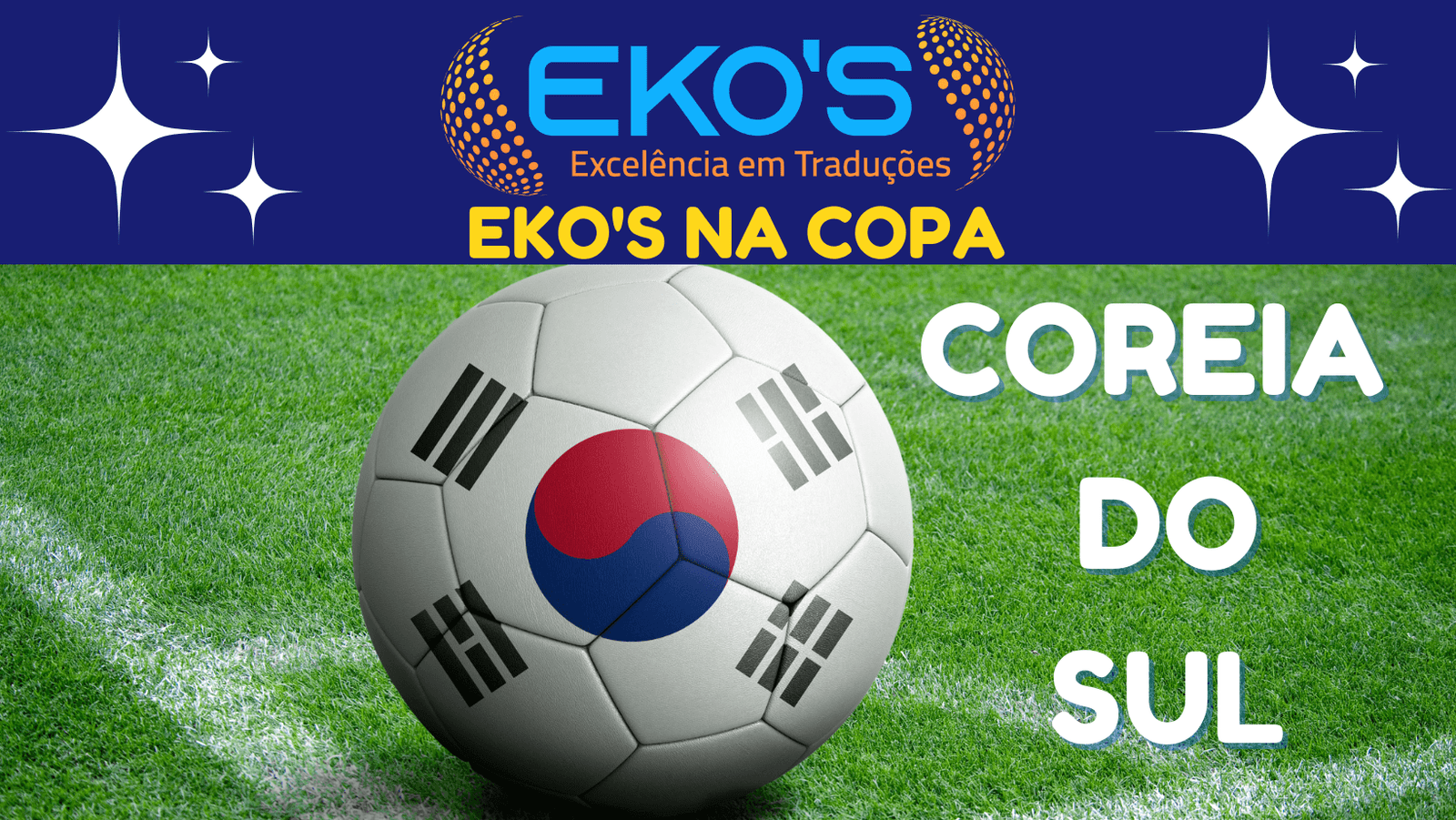This is our last Eko’s in the World Cup. This project brought a little of the culture of each country participating in the World Cup and showed how the world is globalized and why it is important to know a reliable professional translation company.
Today we are going to talk about South Korea and we hope that you are already living the World Cup atmosphere, since 2022 World Cup starts on Sunday.
SOUTH KOREA
- Name written in its native language: 대한민국
- Language: Korean
- Capital city: Seoul
- Currency: South Korean won (BRL 0.0038 – currency exchange on 11/10/2022)
- Main player: Heung-min Son
- Typical food: Kimchi
Curiosities
The 38th parallel north is an imaginary line that is 38 degrees north from the Equatorial line, and it was suggested to divide Korea when the Russian and the Japanese empires disputed the territory. The Japanese empire proposed a division to the Russian empire; however, there was no agreement between the parties and, in 1910, the Japanese empire took full control of Korea.
After the end of World War II in 1945, the Korean territory was divided into two parts according to the 38th parallel north. There were some conflicts between north and south sides, which were repressed with the help of the UN.
A demilitarized zone was created, measuring 250 kilometers separating both territories. Since 1974, South Korea found four tunnels excavated by North Korea crossing the demilitarized zone. The third one, known as the Third Tunnel of Aggression, is now a tourist spot protected by 3 concrete barricades.
In South Korea, the red color is used to write the name of people who have already died or who are close to death; hence, foreigners should pay attention not to write someone’s name in red, since this can mean something really bad in the South Korean culture.
In the last years, Korea has been the world cultural vanguard due to the K-pop phenomenon, which, besides being a music style, it involves fashion and dance. Nowadays, Korean bands have a huge amount of fans all over the world. The most famous one is BTS, which has already toured the world and whose fans call themselves the BTS army.
The language in South Korea is Korean, and its alphabet is known as Hangul. Although foreigners find the alphabet complex and hard at first, Hangul is one of the most efficient writing systems in the world. Hangul emerged during the reign of Sejong from Chosun dynasty. This king, who was an academic, was bothered by the fact that the Korean population was illiterate. Besides the fact that only a portion of the population had access to learning the Chinese alphabet, the King used to think that this alphabet was not able to express the Korean culture, so he created Hangul with 25 characters. Nowadays, 24 are used and, thanks to Sejong, 99% of the South Korean population is literate.
Although it is a very efficient language, it is not possible to translate Hangul if the translator does not know its characters, which are totally different from the Latin alphabet. Thus, in case you want to read something in Korean, look for a professional translator, who will perform the translation and will make the appropriate adjustment to the Korean terms.

Kimchi is the main dish of the Korean cuisine, which is so present in the Korean culture that, in 2013, it became an intangible cultural heritage. It is considered the basis of Korean food and comprises vegetables put in brine for long hours, wrapped in a paste made of rice, sugar, and several spices. Kimchi may be eaten alone or with other dishes.
The South Korean team had its best performance in 2002 World Cup, when the country hosted the tournament together with Japan, and was in the fourth place after losing the semifinals to Germany and losing the third-place match to Turkey.
Nowadays, the main highlight of the team is the striker Heung-min Son, or simply Son. He played in the German youth league soccer, debuting professionally at Hamburg, and also played for Bayer Leverkusen before playing for Tottenham from England. Son stood out in England because of his speed and technical ability; however, his presence in the World Cup may be compromised due to an injury he suffered on the first of November, when he collided with a defender from Olympique de Marseille and suffered four fractures in the left eye socket. Due to that, Son had to undergo a surgery, but has already announced that he will play in the World Cup. The question now is to know whether the striker will be able to play all the matches and have a good performance with such a short recovery time.

This was Eko’s in the World Cup for South Korea, the last one in our sequence about the World Cup. We would like to thank all those who have read our texts with curiosities about the World Cup teams, and if you liked it, keep following us on social media (Instagram: @ekostraducoes / LinkedIn: ekostraducoes). Whenever you need a translation service, please contact us.

